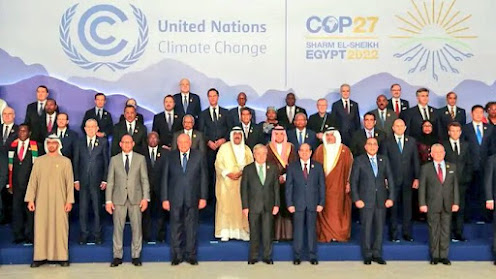A Climate Emergency
Climate change, a phrase we are all familiar with. In 2022, this country saw heat waves in the summer and freezing temperatures in the winter. These are the consequences of humanity’s overexploitation and greed. Unfortunately, as highlighted in urban political ecology theory, it is those who are marginalised and contribute the least to issues that are often affected the most (Swyngedouw and Heynen, 2014). Climate change manifests itself through floods, heatwaves, droughts, and natural disasters. This blog will shed light on these symptoms that impact women in Sub-Saharan Africa.
Women as farmers
Ecofeminist theory suggests that women and nature are both victims of patriarchal dominance. The disproportional impact of climate change on women is brought about by their involvement with the environment. For example in Ghana, 80% of the country's total food production comes from smallholder farms run by women (Ugwu, 2019). The reliance on rainfed agriculture means that rainfall reduction and increased floods will dramatically impact women’s livelihoods. This can leave them without income which can result in them and their children being at risk of illness and disease. Not only does this impact their professional lives, but also their home life, as women are more vulnerable to abuse when they can’t complete domestic chores as highlighted in my previous blog (Stevenson et al., 2012). This demonstrates that in Ethiopia, climate change has the potential to cause a profound impact on environmental, biophysical, economic, and social spheres.
COP27
In Ethiopia, women make up more than 40% of the agricultural labour force, combined with household duties, rural Ethiopia women’s working day is 19% longer on average than that of men (Arora, 2015). Their involvement in sectors stressed by climate change are undeniable. However, their voices are not being heard. Out of 110 leaders at this years COP27, there was 7 women. Figure 1 shows the events ‘family photo’, it has a robotic nature to it and could pass not as a world leader gathering but as a promotion for Netflix’s dystopian show ‘Black Mirror’. It feels satirical and that there will soon be a punchline. That is until you realise there is no joke, no laughter, just oppression.
Figure 1- World leaders posing for a group photo at the UN COP27.
The COP needs to become accountable. Women are disproportionally impacted by climate change and their involvement in agriculture is riddled with obstacles they need to overcome. In the Benshangul Gumuz region of Ethiopia, women do not have the same access to training, land qualities and resources as men (Mussema and Yirga, 2020). This means they are less productive and as a result there is danger of severe food shortages. World leaders, you signed up to SDG goal 13: Climate Action. To commit to this you need to invest in women, they have the potential to make a difference, but in order to do so they need to be given a fighting chance.


I really enjoyed reading this blog, particularly the reference to the COP27 picture reminding you of Black Mirror...scary how ironic that is. There definitely needs to be a greater participation of women in these global meetings to make global change. In your opinion do you think that female participation will increase for poorer African countries such as Ethopia in the future, given that the society still has very strong patriarchal views?
ReplyDeleteThank you, as a black mirror fan I was overwhelmed with the similarities! In answer to your question, I am very hopeful that female participation will increase, however I fear this will be out of necessity rather than empowerment. Women have a great deal of knowledge when it comes to water processes and therefore when the effects of climate change become unbearable I don't think men will have another option but to let them have a seat at the table.
DeleteVery interesting stuff Emily! Reading this article brought up a thought that I had when I was reflecting back on my blogs (which focusses on Water and Food), which is that I barely talk about women farmers! It is true that in climate change talks, women are often left out of the conversation or consideration. I appreciate your post for that reason. Hope you can check out my next blog which will discuss farming iniatives that empower women!
ReplyDelete